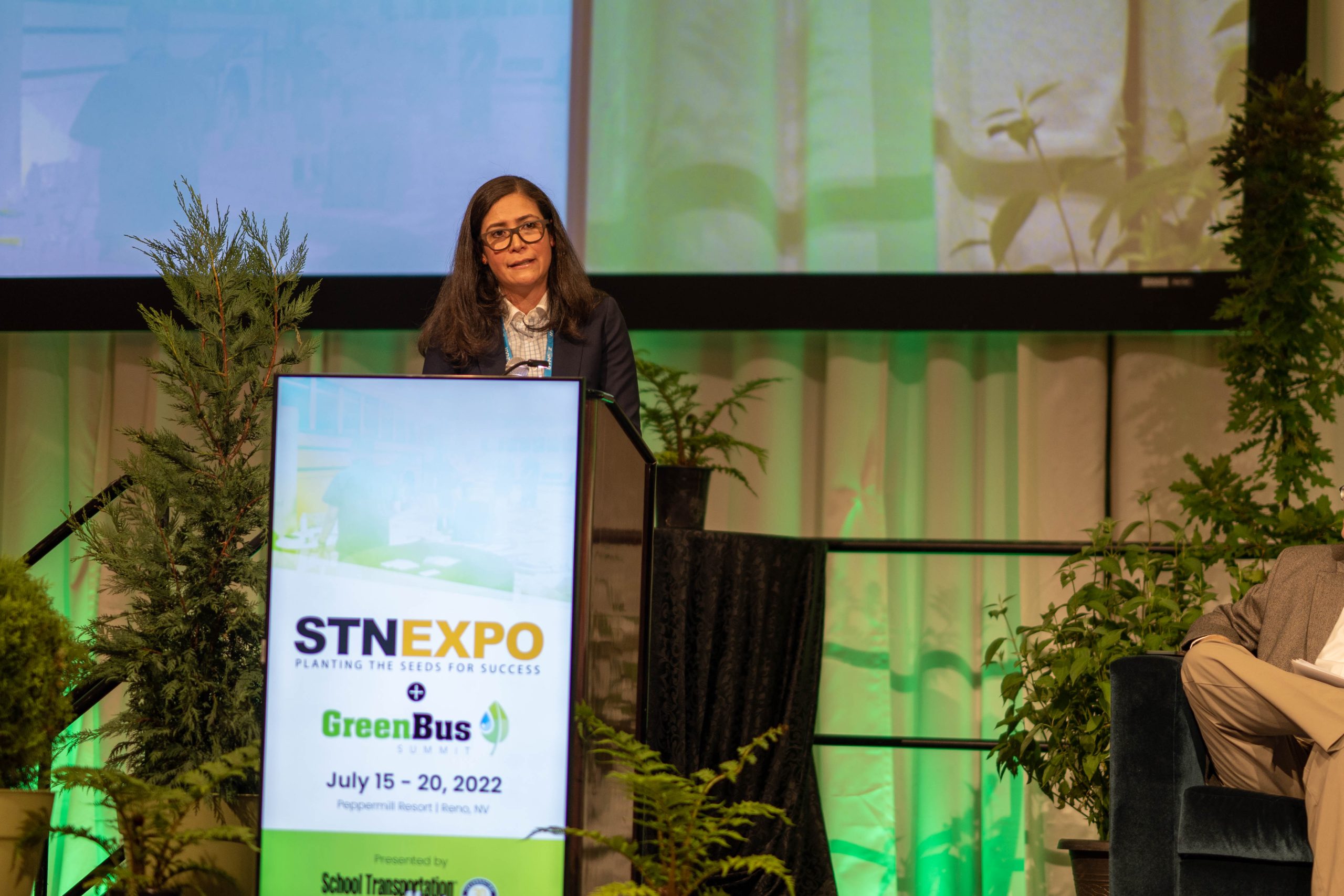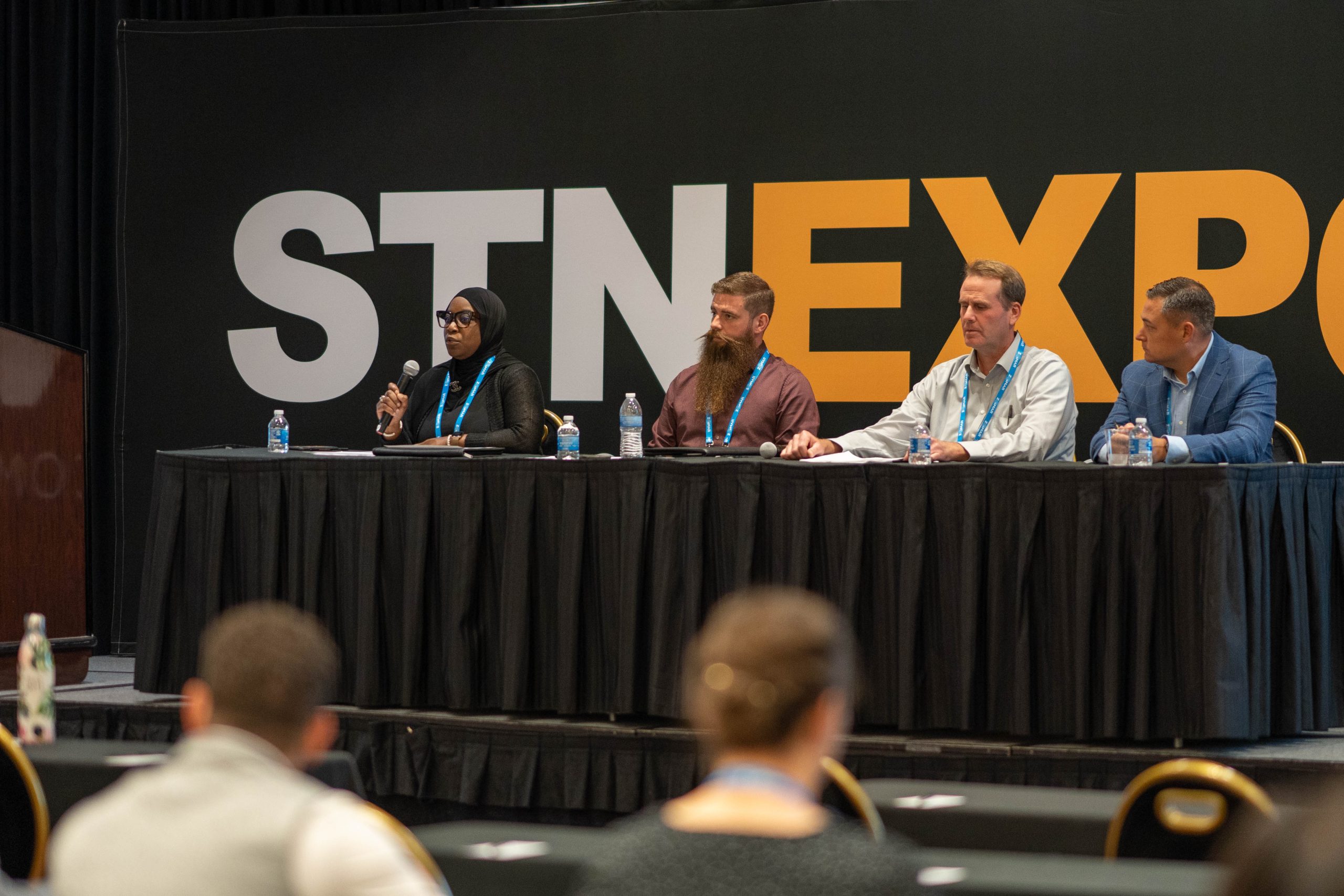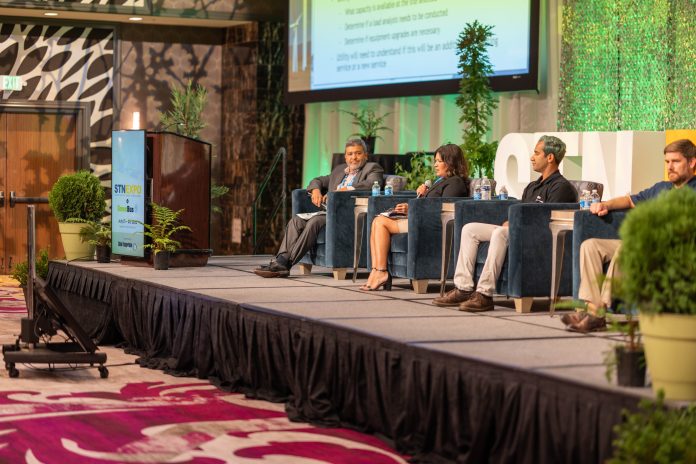RENO, Nev. — In addition to an entire day dedicated to zero- and low- emissions at the Green Bus Summit on July 17, several sessions at the STN EXPO Reno focused on the implementation of electric school buses.
At a general session on July 19, Alejandra Nunez, the deputy assistant administrator for Mobile Sources at the U.S. Environmental Protection Agency (EPA), and Esperanza Perez, the tribal coordinator and school bus lead for EPA Region 9, were also in attendance discussing the Clean School Bus Program.
Facilitating the panel with Perez was Michael Laughlin, the technology manager for the U.S. Department of Energy, which has taken a consultant role to the EPA on the program. Other panelists were Daniel Gage, the president of natural gas advocate NGVAmerica; Sue Gander, the director of the electric school bus initiative at the World Resources Institute; and Stephen Whaley, the director of autogas business development for the Propane Education and Research Council.
With the deadline for the Clean School Bus Program year one rebate approaching fast on Aug. 19, the representatives discussed the positive health effects of clean fuels and how districts have so adopted the energy and/or fuel type into their fleets.

Whaley moderated an earlier session during the Green Bus Summit, during which three transportation directors from across the U.S. discussed their propane school bus implementation stories.
Following the Clean School Bus Program general session and the STN EXPO Trade Show, Gilbert Rosas, the director of substantiality and adaption for Modesto City Schools in California, discussed how he beat his own record for implementing electric school buses that was set at his previous district, Stockton Unified School District. At Stockton, Rosas implemented 11 electric school buses in less than a year. At Modesto, he said he’s on track to implement 30 in about seven months.
That panel on providing project management for implementing electric school buses was facilitated by Rosas and consisted of several members of his electric transition team at Stockton and Modesto: Zoheb Davar, the director of business development and growth for the Mobility House; Elliott Feldman, the program manager of sustainability business for Schneider Electric; Monique Hampton, the energy services manager for the Turlock Irrigation District; and Peter Tuckerman, director of sales for A-Z Bus Sales.
The discussion centered on each person’s and company’s role in electrifying school buses at Stockton and now Modesto. Rosas noted that even without any previous knowledge of electricity, that by having the right team in place led to achieving the state goal of reducing emissions.
“I knew that if it will affect a child’s life in a good way, we were doing good work,” Rosas said.
Related: Green Bus Summit Panel Gives Propane Autogas Implementation Tips
Related: Outdoor Immersive Green Technology Experience Caps Off Green Bus Summit
Related: STN Announces Green Bus Summit Fleet Awards at STN EXPO Reno
Related: Green Bus Summit Panel Gives Tips on Fleet Electrification
Related: Gallery: Green Bus Summit Focuses on Clean Future
Another STN EXPO session on July 18 discussed the challenges and opportunities of implementing electric school buses into fleets. Facilitated by Jared Schnader, the director of the national bus initiative for CALSTART, was joined by representatives from school districts of various sizes. Brandon Coonrod, the assistant director of student transportation for Portland Public Schools, represented a medium-sized school district of 100 buses. Teresa Fleming, the executive director of transportation for the School District of Philadelphia, spoke from the perspective of a large, urban city school system that runs both in-house and outsourced transportation. Zach Pierce, the director of transportation for Red Bluff Joint Union High School District in northern California, spoke from the perspective of a small, rural district. Nick Voisard, the senior director of EV for National Express in Ohio, was a last-minute replacement for Quincy Natay, the superintendent of Chinle Unified School District that operates on the Navajo Nation in northeastern Arizona.
The participants discussed the cost savings of going electric as well as how the current supply chain kinks have impacted some bus purchases. For instance, Fleming noted that due to grant requirements, Philadelphia had to purchase a larger-passenger bus because the one she originally wanted wasn’t going to be delivered within the grant-required time period.

Coonrod noted that Portland is having challenges finding smaller electric buses to transport special education students. However, his biggest piece of advice to attendees was to do the research. He said it’s not just about buying a bus but understanding what type of charger is needed, where to place the charger, and if upgrades need to be made to any infrastructure.
One shop upgrade the panelists noted was ensuring vehicle lifts would hold the electric school buses as they weigh more than diesel or propane buses.
While a common question throughout all of the sessions was how the bus drivers have taken to the new vehicles, an overwhelming consensus was once the drivers are given the proper training and they know how to operate the vehicles, they love them.
















